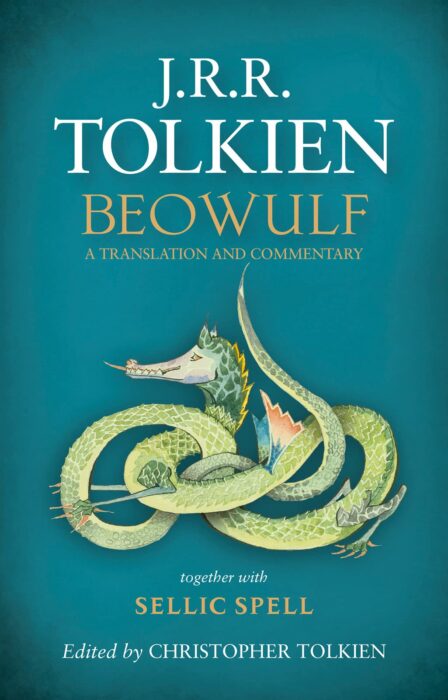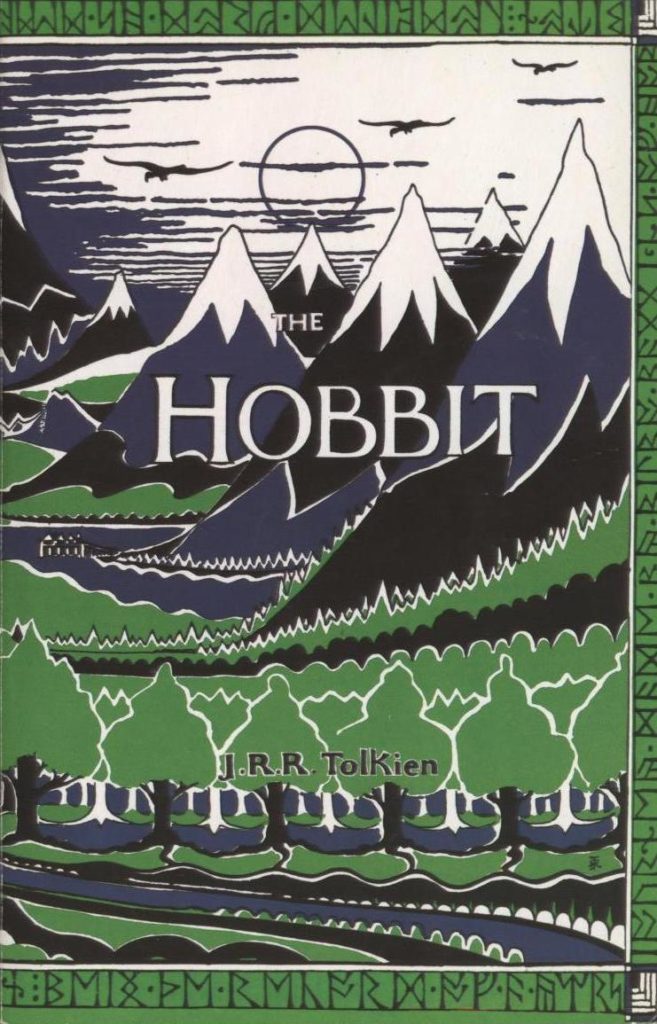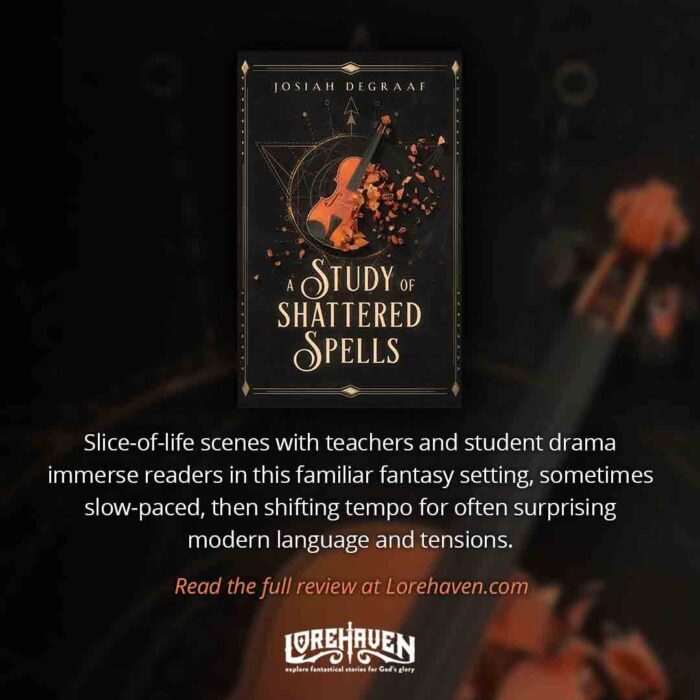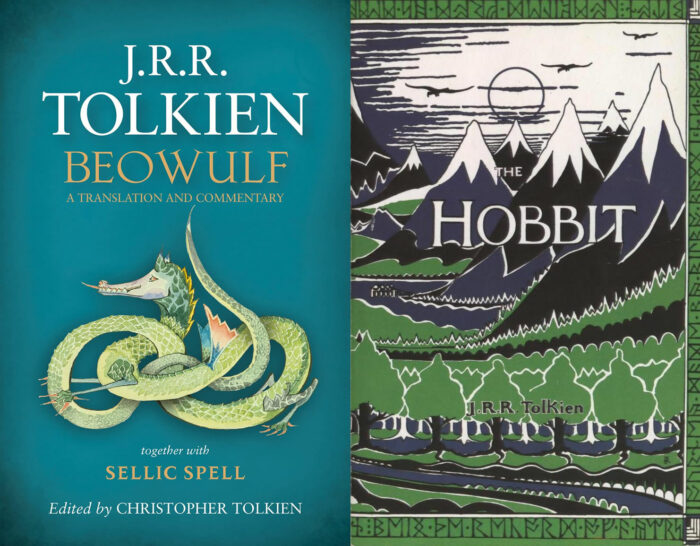Behold God’s Providence in ‘Beowulf’
In the later days of Beowulf’s reign, a fiery dragon takes up residence upon an abandoned inheritance.1 For three hundred years this dragon slept peacefully, until into his lair:
“went some nameless man, creeping in nigh to the pagan treasure; his hand seized a goblet deep, bright with gems. This the dragon did not after in silence bear, albeit he had been cheated in his sleep by thief’s cunning.”2
Provoked to wrath by the theft, the dragon begins terrorizing the countryside. This plot may remind you of J. R. R. Tolkien’s plot from The Hobbit (1937). Indeed, Tolkien translated those lines from Beowulf in 1926, eleven years before The Hobbit’s publication. In fact, one year before The Hobbit released, Tolkien published his paper “Beowulf: The Monsters and the Critics” (1936).
This cornerstone study forever changed the scholarship on this poem. Clearly, when Tolkien wrote Bilbo’s story, his mind was filled with inspiration from the Old English epic. His scholarship helps show how this ancient poem inspired The Hobbit.

Tolkien translated “Beowulf” himself in 1926. His son, the late Christopher Tolkien, later edited the translation along with Tolkien’s notes for publication in 2015. (Get the book at Amazon.)
Beowulf mixes pagan poetry with fantastical Christian ideas
Tolkien shares with Beowulf’s poet a peculiar status as a Christian writer who draws extensively from pagan sources. In some ways, Christianity shows more overtly in Beowulf than in Tolkien. For instance, Grendel, the troll who terrorizes the Danes, begins his murderous rampage in fury over the bard’s song about God:
“There was the sound of harp and the clear singing of the minstrel; there spake he that had knowledge to unfold from far-off days the first beginning of men, telling how the Almighty wrought the earth.”3
This galls Grendel because he, like many other monsters, descends from the kin of Cain. By implication, Cain’s children mixed with fallen angels, associating such creatures with the Nephilim.4 The fiery dragon clearly evokes Satan; Beowulf’s author even refers to him as a “fiend.”
So the poet explains pagan evils as enemies of the Christian God. As Tolkien put it, “At this point new Scripture and old tradition touched and ignited.”5 Beowulf can overcome the ultimately human monstrosity of Grendel and his mother. But he cannot fight supernatural problems, like his own prideful sin and the devilish dragon’s power.
Still, God brings heroes to the land for people’s aid. Beowulf introduces this theme when Hrothgar’s ancestor Scyld Scefing’s heir is described as one “whom God sent for the comfort of the people”6 Tolkien translates this man’s name as “Beow,” but in the manuscript this reads “Beowulf.” That’s a common choice among poem translators to avoid confusion with the eponymous hero.
So when the Beowulf says in the poem, “Ich eom Beowulf” (I am Beowulf), Hrothgar would remember (and so might the reader) that that name had been identified explicitly as the working of God’s providence. The Beowulf poet could find evidence that providence worked in pre-Christian times among Gentiles:
“And [God] hath made of one blood all nations of men for to dwell on all the face of the earth, and hath determined the times before appointed, and the bounds of their habitation; That they should seek the Lord, if haply they might feel after him, and find him, though he be not far from every one of us.”7
Why Beowulf explores such pagan-Christian crossovers
Of course, this truth does not erase distinctions between Christian believers and pagans who intuitively felt around in the dark for God. Rather, we can perhaps learn some things from the Anglo-Saxon poet’s pagan ancestors and their stories.
Pagan imagination is sin-stained and incapable of achieving the truths of special revelation without the Holy Spirit’s direct intercession (unique to Scripture alone). But pagans can still use their imaginations to glimpse God, though through a glass darkly. This is enough truth for Paul to say that the non-believer is without excuse.8 Indeed, if we can see gleams of God’s truth even in pagan myths, this only underscores God’s sovereign design of human imagination, in spite of how sin corrupts this gift.
Thus, if you were an Anglo-Saxon Christian, a story set in your ancestors’ pagan past might help you feel Gospel truths all the more poignantly. That’s because the story is illustrated by subject matter not intentionally crafted to support Christian belief until it came into the poet’s hands.
This is true because pagan storytelling participates in a fundamental aspect of the image of God, the imago Dei. As Tolkien write in his essay “On Fairy Stories,” since God is a Creator, and Man is made in his image, we are therefore “sub-creators.”

J. R. R. Tolkien’s classic fantasy The Hobbit was published in 1937.
Pagan and Christian storytellers are different, because the Christian ought to deliberately dedicate his writing to the service of Christian truth. However, we don’t simply believe the dogma of Christian truth. We also know that truth’s emotion and enchantment, which is compelling to the imagination as well as to reason.
Beowulf’s poet begins his largely pagan narrative as Hrothgar’s court bard tells the story of God’s creative act. So we can know the poet considered the meaning of a Christian crafting a story out of non-Christian material. We might say this makes him an early example of a Christian writer of speculative fiction, asking in story form, “What can the tales of my pagan ancestors have to do with Jerusalem?”
Tolkien, as a keen reader and admirer of the poem, found in Beowulf a paradigm for his own Christian views of myth-making. He explained this “was not consciously present to the mind in the process of writing” The Hobbit. Nonetheless, he also says, “Beowulf is among my most valued sources.”9
We see striking parallels between Beowulf’s dragon and Smaug’s provocation to rampage (by an unimportant thief stealing a precious chalice). This is actually more interesting, given Tolkien’s statement of unconscious influence, showing just how deeply the poem had worked into his imagination. And yet The Hobbit, as Tolkien’s mythopoeic creation, has even less explicit Christianity than appears in Beowulf.
Tolkien’s biblical parallels become more explicit in The Silmarillion legendarium and in The Lord of the Rings. It’s easy to see Christian reflections in Gandalf’s sacrifice that leads to glorification, or the One Ring as the power of sin’s temptation.10
But what of The Hobbit? Tomorrow, part 2 of this series explores Tolkien’s similar approach, showing God’s sovereignty over all the world, including pagan myths.
- This article was originally published at Speculative Faith, July 18, 2020. It’s now reprinted in this two-part series, with some changes. ↩
- Beowulf, 77–79. ↩
- Ibid, page 15. ↩
- Ibid, page 16. ↩
- J. R. R. Tolkien, “Beowulf: The Monsters and the Critics,” page 11. ↩
- Beowulf, page 13. ↩
- Acts 17: 26–27, KJV. ↩
- See Romans 1:20. ↩
- Letters of J. R. R. Tolkien, page 31. ↩
- I call these parallels, not allegories, which Tolkien found unpleasant when too rigid. ↩

































Share your fantastical thoughts.